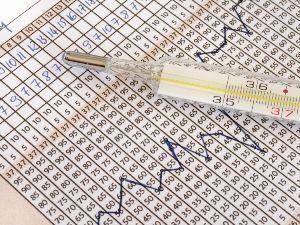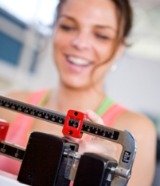Is There a Link Between the Atkins Diet and Infertility?
The Atkins Diet and infertility were recently linked in a study done with mice, but it is too soon to say whether this applies to humans. The study was small and limited, and there are many doctors who have reserved judgment until more studies on the connection between the Atkins diet and infertility are done, particularly on women instead of mice.
Some doctors say there are three things that indicate the results of this study (the only one so far that suggests any link between the Atkins Diet and fertility problems) are flawed:
- While the mice receiving 25% protein instead of 14% protein did conceive less often, this isn’t surprising – mice are herbivores. That means they usually eat only plant foods, so they would eat much less meat than humans in any situation.
- The genetic differences between mice and human females, including how hormones and genes work, are significant enough to make the report only minimally of interest, if at all.
- Other studies have contradicted this one, so until there are more definite tests you can’t really say that any of them prove that there is a connection
Obesity, the Atkins Diet and Infertility

In fact, obesity is often a real problem for women trying to get pregnant. It interferes with ovulation and can make you too unhealthy to sustain a full-term pregnancy. If you are trying to conceive, losing weight often helps – and the Atkins Diet is a good, safe way to lose weight relatively quickly without taking diet pills that could have potential side effects.
Being overweight also adds to the risk of complications during pregnancy, so losing some weight while you are trying to get pregnant (and before you start trying) is a good thing. It will help in several ways:
- Being overweight makes it more difficult to get pregnant, so losing weight on the Atkins Diet can increase your chances of conceiving as you get closer to your ideal weight.
- Being overweight can make your menstrual cycle irregular, making it more difficult to know when you are most likely to conceive.
- Once you become pregnant, you will be more comfortable if you maintain a healthy weight rather than gaining too much weight or being overweight already. This is especially true during the later stages of pregnancy, when carrying extra weight from the baby will put some strain on your back.
- Having a healthy weight will ensure that it is easier to lose the “baby weight” after delivery.
- The Atkins Diet also helps lower cholesterol and blood pressure, two things that can go up during pregnancy. You will be healthier and feel better if you have these under control while you are trying to conceive.
Dr. Atkins' Diet Plan can help you in the long run if you are looking forward to becoming pregnant. The best way to do this is to use the Atkins Diet to lose weight before you begin trying to conceive. I say this because you should probably wait until you are in the “Weight Loss” phase, and not in the “Induction Phase.” This way you will be eating a wider variety of foods. You should also always take a prenatal vitamin while trying to conceive so that you are getting all of the nutrients, vitamins and minerals your body will need while you are carrying a baby.
Talk to Your Doctor about the Atkins Diet and Infertility Concerns
So if you feel your weight may be contributing to your infertility, talk to your doctor about starting the Atkins Diet. When you have reached an optimal weight, you may be surprised at how quickly you conceive.
Read more articles on the controversy about the health risks of the Atkins Diet.
Is the Atkins Diet Safe?

Why Some Doctors are Against the Atkins Diet
The 4 Phases

The Complete Atkins Induction Diet Food List
Success Stories

Share Your Atkins Success Story


